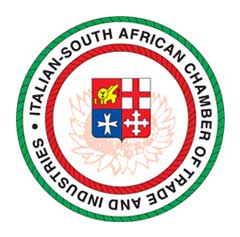Jet Aglow e Captainofmysoul i cavalli della fortuna per l'Italia a Kenilworth sabato 8 dicembre
- Details
- Created on Friday, 30 November 2012 10:09

Ieri è stato fatto il sorteggio dei cavalli che parteciperanno sabato 8 dicembre alla prima grande corsa della stagione all'ippodromo di Kenilwoth, che mette in palio 750.000 rand e si chiama "2012 Avontuur Estate Cape Fillies Guineas". La corsa è abbinata al Villaggio Intercontinentale che vedrà la partecipazione di otto comunità nazionali di Città del Capo, fra le quali quella italiana. Ai cavalli è stato assegnato un capitale complessivo di 125.000 rand da distribuire fra le opere di beneficenza segnalate dalle diverse comunità. L'organizzazione abbinata al cavallo che vincerà la corsa riceverà un premio di 25.000 rand, mentre agli altri andranno somme digradanti, ma in ogni caso ciascuna comunità avrà almeno alcune migliaia di rand per l'opera di beneficenza di sua scelta. La comunità italiana ha scelto l'orfanotrofio scalabriniano Lawrence House di Woodstock, che accoglie ragazzi e ragazze le cui famiglie sono state decimate o distrutte nelle varie guerre civili che ancora insanguinano gran parte dell'Africa.
Al sorteggio di ieri erano presenti Raffaele Panebianco in rappresentanza del Comites e del comitato che organizza la partecipazione italiana, padre Mario Tessarotto per l'orfanotrofio e il nostro direttore a doppio titolo in quanto La Gazzetta del Sud Africa è il "media partner" della rappresentativa comunitaria italiana.
La fortuna ha assegnato all'Italia i cavalli che partiranno rispettivamente in quinta e in sedicesima corsia. Quest'ultimo si chiama Captainofmysoul e in carriera ha vinto due corse su 39 disputate. L'altro cavallo è molto giovane e ha al suo attivo soltanto cinque corse, ma può vantare due vittorie e un secondo posto. Inutile dire che risposano sul suo dorso le speranze italiane di una vittoria o di un buon piazzamento nella corsa di sabato 8 dicembre.
Il sorteggio è avvenuto nella meravigliosa cornice dell'azienda vinicola Avontuur, sulla R44, a sette chilometri da Somerset West e a una quindicina da Stellenbosch, fra prati verdissimi sui quali puledrini sorvegliati dalle mamme davano sfogo alla loro gioia di vivere con improvvise galoppate, rincorse e tenerissime scene di amore materno. Vigneti a perdita d'occhio e folate di vento che comunque non hanno disturbato più di tanto il sorteggio effettuato all'aperto, davanti alla cantina. Presenti personalità del mondo delle corse dei cavalli, allevatori e allenatori e rappresentanti delle comunità partecipanti al Villaggio Intercontinentale, che sono, oltre l'Italia, l'India, il Sud Africa, il Portogallo, la Turchia, il Libano e la Thailandia, più la Western Province Racing.
Il sorteggio è stato alquanto laborioso. Il primo passo era trovare il numero di partenza del cavallo sotto il fondo della bottiglia di un vino bianco di Avontuur. Poi si passava alla scelta di una busta contenente il nome della comunità alla quale quel cavallo sarebbe stato abbinato e infine un esponente della comunità (nel nostro caso Raffaele Panebianco), completava il cartellone del sorteggio con l'affissione delle strisce indicanti il nome della nazione, quello dell'opera di bene e infine il nome del giornale associato alla sua comunità per questo evento.


Scalabrini Trust and Lawrence House
Organisational Structure
The Scalabrini Centre Trust runs under the leadership of Executive Director, Miranda Madikane, who reports to a board of nine Trustees chaired by Scalabrini Father Mario Tessarotto and mentored by South African former Archbishop Lawrence Henry.
Lawrence House is governed by a Management Board comprising a trustee, the Scalabrini Centre Executive Director, the Lawrence House manager, the social worker and a senior child care worker, a psychologist and a financial analyst. The Board, which meets every second month, can be increased in size to nine members. The board monitors the day to day operations of Lawrence House and approves programmes and projects and reports to the Trust.
Mission Statement
Perceiving migration as an opportunity, the Scalabrini Trust is committed to alleviating poverty and promoting development in the Western Cape while fostering integration between migrants, refugees and South Africans. In providing our assistance, we advocate respect for human rights and use a holistic approach that considers all basic needs.
Goals and Objectives
The Scalabrini Trust address the physical, psychological, legal, educational and occupational needs of its beneficiaries in the most holistic, effective manner through the provision of welfare, development, educational, outreach and advocacy services.
The Scalabrini Trust subscribes to a rights-based approach and is dedicated to the realisation of human rights as laid down in the Universal Declaration of Human Rights as well as other national and international human rights instruments. Our work is directed at promoting and protecting the human rights of highly vulnerable refugees, asylum seekers, displaced people and the poorest of the poor South Africans as well as fostering democracy, non-discrimination, equality, participation and inclusion.
Brief organizational overview and history
The Scalabrini Centre offers a variety of programmes incorporating development services (affording clients access to the resources, skills, knowledge and support required to become self-reliant), a wide range of welfare services (including emergency support, individual and group counselling, voluntary HIV counselling and testing, HIV/AIDS support groups, life skills workshops and a health clinic), and an advocacy programme. Our advocacy work responds to challenges in the implementation of law and policy, and works towards ensuring the legal protection and respect for the rights of refugees, migrants and unaccompanied foreign children, as stipulated in the South African Constitution. The Scalabrini Centre of Cape Town is also involved in a number of outreach initiatives.
Lawrence House was opened in April 2005 to address the specific need for appropriate accommodation for a number of abandoned migrant and refugee children who were living at the Ark Shelter in Mfuleni. Under the guidance of the Trust, Lawrence House was registered with the Department of Social Development and obtained temporary registration in 2007. After achieving full registration in 2009, Lawrence House embarked on the transformation process from children’s home to child and youth care centre, as envisaged in the Children’s Act.
Lawrence House is open to all children in need of care and protection, however, given its history, has specialised in the care of migrant and refugee children.
Beneficiaries
During the migration process, especially when leaving a war-torn country, the most vulnerable groups comprise families with children and unaccompanied minors. In addition to the hardship of reaching South Africa, newly-arrived families frequently face extremely challenging socio-economic conditions. The children are often exposed to risks such as neglect and ill health, and schooling is frequently a major challenge. Family disintegration often results in the abandonment of these highly vulnerable children.
In 2005, the plight of refugee children, the absence of clear procedures and best practices on dealing with such children and limited access to social grants and support, urged The Scalabrini Centre to create a place of safety and care for abandoned and orphaned refugee children. Not only did Lawrence House provide much needed shelter and care for these children; given the organisation’s expert legal knowledge and vast experience, it soon became a valuable reference point for other organisations with less experience in the specialised field of working with refugees.
Introduction to Lawrence House
Lawrence House currently provides full-time residential care and protection to 27 children, boys and girls aged between eight and 19 years of age, from six different African countries: Angola, the Democratic Republic of the Congo (DRC), Rwanda, Zimbabwe, Namibia and South Africa.
Aims and Objectives
In keeping with the requirements of the Children’s Act, the overarching aim of Lawrence House is to provide residential care, development, therapeutic and statutory services to vulnerable, orphaned and abandoned children.
The specific objectives of Lawrence House are to:
• Provide basic care and protection to children in need, including accommodation, meals, education (mainstream and special needs) and health care,
• Provide the necessary needs-directed therapeutic and developmental services, ensuring that the children are equipped and supported to cope with the challenges they face and are assisted to achieve their full potential
• Promote family reunification, where possible and appropriate, and to work towards the reintegration of children into the community.
Programmes and Activities
While the therapeutic and development programmes address specific needs of the children, we believe that “first therapy” takes place during the daily interactions with the child and youth care workers. These are the immediate care givers of the children who serve as mother and father figures. They ensure that the children’s basic needs are met and are actively involved in leading or supervising all daily activities at Lawrence House. These revolve chiefly around the daily routine of waking up, having breakfast, preparing for and going to school, having lunch, doing homework, enjoying playtime and leisure activities, having supper and bedtime.
Our current care team comprises three senior and three junior child and youth care workers providing 24-hour care conducted in shifts, including over weekends and public holidays.
The children’s individual developmental goals and strengths are recorded in a comprehensive Individual Development Plan (IDP) which is developed involving the active participation of the child. The intention is to provide a stimulating and motivating environment allowing each child to explore his/her own interests and talents, and to develop to his/her full potential.
The Developmental Programme incorporates the following initiatives: educational support, recreational and extramural activities, life skills training and skills development, socio-cultural activities and spiritual growth as well as an independent living programme for youth in transition towards independence.
Individual therapy is offered where needed yet very importantly the therapeutic milieu at Lawrence House offers the possibility of constant intervention for the child at a therapeutic level. Additionally, a comprehensive, holistic therapeutic care programme, with interventions aimed at behaviour modification around common problematic behaviour such as anger management, inability or unwillingness to sharing feelings or a lack of self-confidence, is offered.
Specific activities and/or services offered through the Therapeutic Programme include:
Developmental assessments, Psycho-social support / therapy, Individual and Group counselling, Trauma counselling, Play therapy, and hopefully a drama therapy group as of next year.
Finally the social worker leads and guides all statutory processes in Lawrence House. These services include the assessment of children, the development and review of individual care plans or Individual Development Plans, statutory removals and intake, Children’s Court enquiries, child panel meetings (child protection meetings), family conferencing, family preservation interventions (assessments and home visits to children’s families, facilitation of contact and family therapy), alternative placements services (foster care and referrals), reunification services and after-care.




















